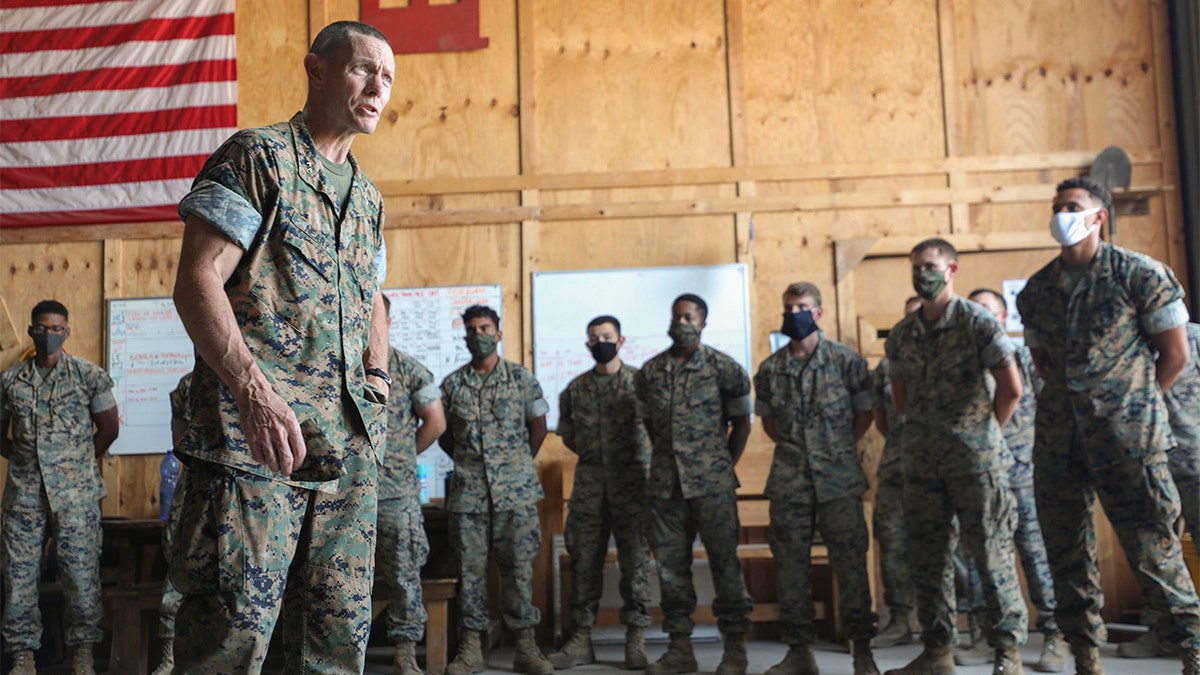Marine parents pin second lieutenant bars on daughter at Camp Pendleton
Master Gunnery Sgt. Tory Hunck, Master Sgt. Vilmary Hunck, and their daughter 2nd Lt. Ashley Hunck join 'Fox & Friends First.'
Maj. Gen. Stephen M. Neary, the commander of U.S. Marines in Europe and Africa, was relieved of command Monday amid an investigation into his alleged use of a racial slur in August.
Stars and Stripes reported that music was playing during a training session that had lyrics with the N-word, and Leary asked the junior Marines how they would feel if he used the word.
Black, White and Latino Marines were shocked by the use of the word, and some present during the incident brought it to the attention of Stars and Stripes after weeks passed with Leary still in command.
PENTAGON BANS CONFEDERATE FLAGS ON MILITARY INSTALLATIONS
"Neary was relieved due to a loss of trust and confidence in his ability to serve in command," the Marine Corps said in a brief statement.
He had just assumed Command of Marines in Europe and Africa in July.

In this July 27, photo provided by the Defense Visual Information Distribution Service; DIVIDS, U.S. Marine Maj. Gen. Stephen M. Neary, Marine Forces Europe and Africa commander, left, speaks to Marines with Special Purpose Marine Air-Ground Task Force-Crisis Response-Africa 20.2, MARFOREUR/AF during a visit to Morόn Air Base, Spain. (U.S. Marine Corps photo by Cpl. Tawanya Norwood via AP)
MARINES SACK COMMANDING OFFICER AFTER TRAINING ACCIDENT KILLED 9 IN JULY
This comes amid a larger racial reckoning in the United States following the May death of George Floyd while in Minneapolis police custody.
The Marines and other branches of the military have been criticized in the past for lack of diversity, but that appears to be changing.
Marine Corps Lt. Gen. Michael A. Rocco, deputy commandant for manpower and reserve affairs, told the House Armed Services Committee last December that the proportion of Marines who are minorities has risen from 30% to 40% in the last decade.
CLICK HERE FOR THE FOX NEWS APP
"Diversity remains critical to the Marine Corps," Rocco told lawmakers.
"Diversity must be included in meaningful ways in order to take advantage of a wide array of aptitudes and perspectives necessary to maintain our current and future warfighting excellence."










































